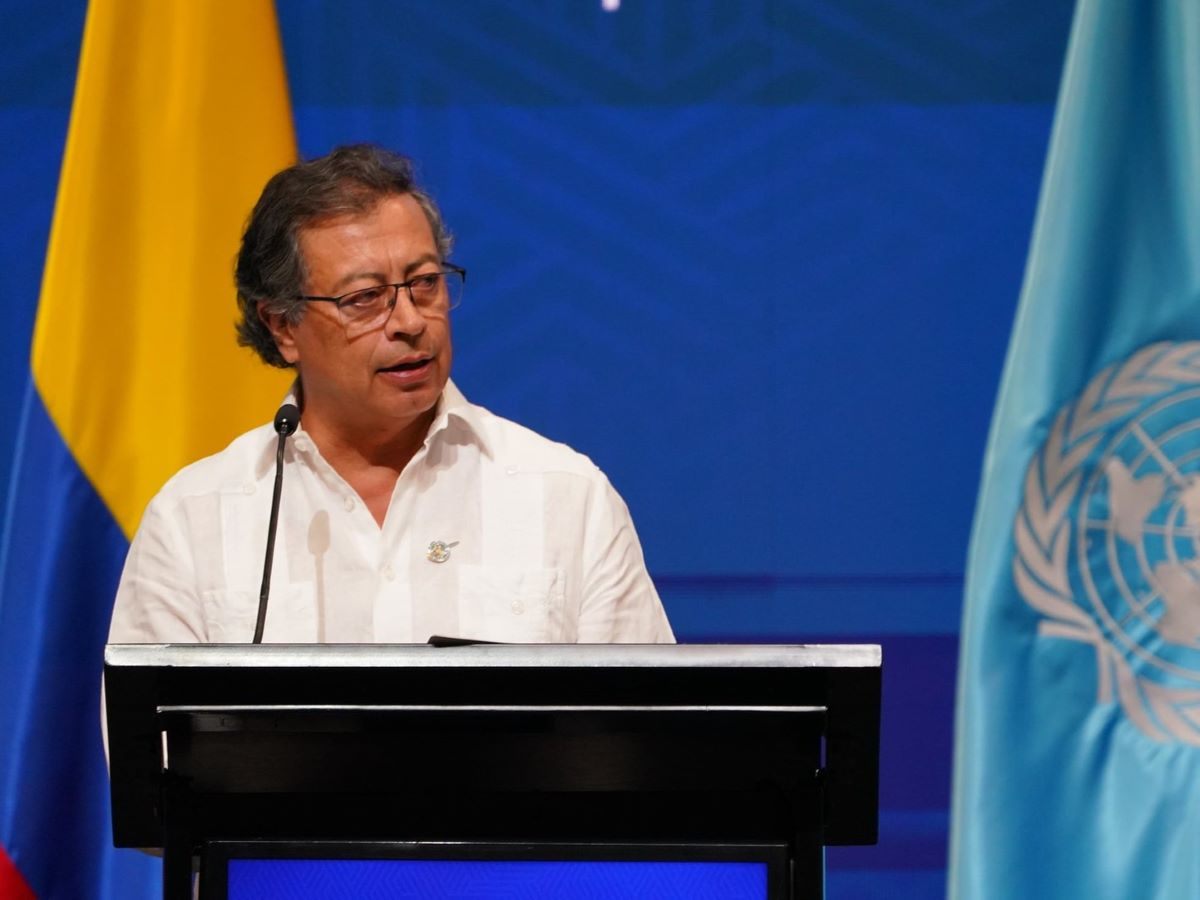This article is also available in Italian / Questo articolo è disponibile anche in Italiano
From Cali, Colombia - On the 30th of October a group of 20 ministers from the global south vocally denounced at COP16 the clear lack of financial commitments from rich countries to protect biodiversity. Grenada's delegate, Safiya Sawney sentenced: 'Your inactions are paralysing us. Our debts to you are crippling us". The ministers called for a roadmap to reach the public finance target as a way of holding donor countries accountable and demand debt reforms.
So far, only an additional USD 163 million has been pledged since negotiations began. To reach the public aid goal of 20 billion by 2025 as defined by the Global Biodiversity Framework at least 4.6 billion is missing. We are now at 15.4 billion. By 2022, funding had reached USD 10.95 billion, or 55 per cent of the target, a sign that if the increase were proportionate, the goal would not be so unattainable.
To date, however, there has been no reassurance from developed countries that this pace of support will continue, especially considering widespread budget cuts in many countries. A report commissioned by Campaign for Nature finds that only three countries have met or exceeded their 'fair share' in 2022, i.e. the amount of money they are due to contribute based on historical impacts. Norway, Sweden and Germany contributed 176%, 147% and 114% respectively. More than half of all pledging countries provided less than 50% of their 'fair share'.
Italy, a G7 country, is reported to have allocated only USD 500 million compared to its due quota of USD 1.5 billion. That is 34% of its fair share. In the Plenary the undersecretary of the Italian minister of Environment and Energy Security, Claudio Barbaro, promised in his plenary speech to increase funds for the protection of marine areas in small developing island states, particularly in the Caribbean area where Mase and the Italian cooperation and development agency already have cooperation programs.
COP16, Innovative tools for finance
Reaching USD 200 billion a year by the end of the decade will require many more tools than public funds alone. Numerous initiatives were presented during these two weeks of COP16, attracting the attention of the many businesses present. One of the successful initiatives was the presentation of the updated version of the Tropical Forests Forever Facility, a fund devised by Brazil to mobilize USD 125 billion from nations and investors with a payout of the return on investment over a 20-year period. The average return on investment is expected to be 5.5% per annum. But in this case the beneficiaries would not be private investors. The shareholder would be nature itself, since the $4 billion per year annuity will be used to incentivize tropical countries to keep their native forests intact, tree by tree. The fund is already on the G20 agenda and will be officially launched at COP30 in 2025, in Belem, northern Brazil.
The Tropical Forests Forever Facility has aroused a lot of curiosity after the various vicissitudes of carbon markets and other instruments to protect forests, and for many it could give rise to a new generation of financial instruments. Colombia, which fully supports the TFFF, has been very active in supporting various innovative finance initiatives to mobilize resources for the protection of biodiversity. It welcomed the placement of the first thematic bond focused exclusively on biodiversity projects in Latin America and the Caribbean, by IDB Invest and Banco Bilbao Vizcaya Argentaria Colombia S.A. (BBVA Colombia).
This bond, valued at a total of USD 70 million, is structured in two tranches: one up to USD 35 million subscribed by IDB Invest and another up to USD 35 million subscribed by International Finance Corporation. The proceeds will support projects aimed at combating biodiversity loss in Colombia such as productive land use and sustainable agriculture, sustainable water management, nature-based solutions, waste and plastic management, forestry and plantations, tourism and ecotourism services.
The role of philanthropy
The COP16 outcome document will also include the role of philanthropic foundations and institutions among the many financial solutions to move resources. One of the most important announcements was the commitment of $51.7 million to accelerate the development of high-quality marine protected areas (MPAs) in the high seas by Bloomberg Philanthropies, Blue Action Fund, Blue Nature Alliance, Gordon and Betty Moore Foundation, Oceans 5, Paul M Angell Family Foundation, Schmidt Ocean Institute, and Vere Initiatives. An initiative that will benefit from the conclusion after eight years of negotiations on the protection of marine biodiversity in international waters.
"The creation of Marine Protected Areas in the high seas is essential to preserving the health of the oceans and their ability to act as climate allies," said Melissa Wright, head of the Bloomberg Ocean Initiative at Bloomberg Philanthropies. “This joint funding effort aims to kick-start the development of proposals for Marine Protected Areas in the high seas and prepare the Treaty for their earliest adoption. With less than 2% of the high seas currently protected, there is no more time.”
A difficult turning point
Paul Polman, the visionary CEO of Unilever, summed it up well. "Every year, $7 trillion of capital is still directed towards activities that damage ecosystems, while only $20 billion goes towards their repair. Funding for nature is woefully inadequate and inequitable: it accounts for only 2% of climate finance. Investments in emerging markets and developing economies are virtually nil.”
Governments still provide $2.6 trillion in subsidies per year that encourage unsustainable production, carbon-intensive consumption, depletion of natural resources or degradation of global ecosystems. As of 2022, this figure has increased by USD 800 billion per year. COP16 will certainly not turn the global financial world around. But the urgency coming from the corridors of the Colombian negotiations, from civil society but also from the business world, must be the lever for action in each signatory country.
To find out more, keep following us: after covering the Kunming-Montreal agreement in 2022, from 25 October to 2 November Renewable Matter will be in Cali for COP16, as the only accredited Italian publication. The journalistic coverage is realised with the support of 3Bee, united in promoting the progress of national strategies for the protection of biodiversity. Visit us in the press room!
Image: President of Colombia, Gustavo Petro, at COP16 © UN Biodiversity



